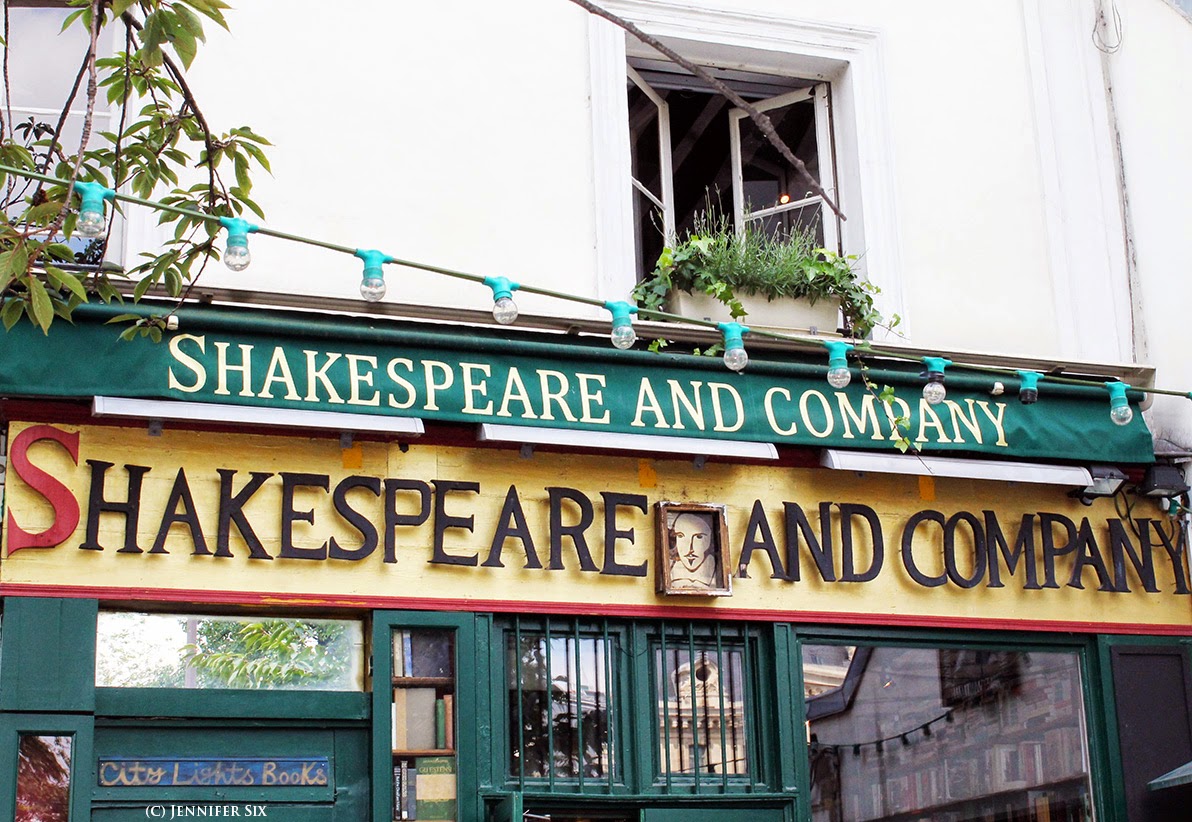LEFT BANK BOOKSELLER - A REVIEW
Shakespeare & Company – the bookshop in Paris with English language literature. Literature geeks have to make a stop here. So did we.
When Cindy and I walked for hours through Paris in June this year, we would not only follow the leads of F. Scott Fitzgerald, Anaïs Nin, Henry Miller or Simone de Beauvoir in a sort of “tour de la littérature” to find all the cafés where the great authors would meet up in. We also came upon the other important place of literary synergies: Shakespeare & Company, located on the left bank of the city. We were enchanted by the many books that were crammed into this shop from the bottom to the top ceiling, from one corner to the other, from a place in the middle of the room to a hidden extra corner. We were amazed by the bookshop’s policy that if you were lucky enough you could live and sleep and write there for a couple of days (for free!) given you would work in the bookshop for an hour or so every day of your stay. The bookshop was a world of literature and endless acquaintances, i.e. bursting with not only books but tourists and customers, too.
While we were taking pictures outside, we heard a familiar voice. We couldn’t place it immediately and only a few minutes after we stopped the picture-taking so that a woman could go through the door we were taking pictures in front of, I remembered the voice: it was Jeanette Winterson, the author of Oranges Are Not the Only Fruit, whom we had met in Dublin after one of her lectures during the Dublin Writers Festival 2012. We were too shy to go inside to talk to her, maybe also because we thought that she didn’t want to be bothered by tourists and/or literary enthusiasts just when she was arriving in her Paris.
With this long introduction into the world of Shakespeare & Co. and what I see in it, I wanted to explain what kind of magic seems to evaporate from this particular shop, its tradition and its love for bringing together literary voices.
No wonder Lisa Reznik decided to give her 2012 short film Left Bank Bookseller a magical note. The look of the pictures as well as the choice and use of music seems very dreamy. However, I thought it a bit too much given that the crew made a tremendous effort to dress the characters in what seems to be historically correct costumes. I would have liked a less "milky" and more gritty gaze on the realities authors faced in the 1920s (and now), but that's probably just a personal opinion. But looking at the way things are going in TV and film, i.e. the highly praised True Detective TV series or Downton Abbey, for that matter, the audience tends to hold on to the grit, the dirt, the historical correctness and I think once could surely add some magic, too. Just a little bit more subtly.
One can see Reznik’s own enthusiasm about books and the literary world of the 1920s in all the scenes, she not only wrote the script but directed the film as well. Considering this and knowing that both jobs aren't the easiest or the most comfortable jobs out there, I must thank her for choosing this topic. While so many independent bookshops are closing and words of fiction seem to be less and less worth, this is an important topic to tackle.
I enjoyed watching the film until I realised that it has no real obstacles – from the way the narrative unfolds and the film is edited we know very soon that James Joyce has difficulties to find a publisher (let alone to finish his book Ulysses) and that Sylvia Beach, the owner of Shakespeare & Co., is not only a big fan of Joyce’s writing but is also very much inclined to help him publish his book. Unfortunately, this way, the narrative tension has no chance to grow as we sniff out the outcome before the characters know it themselves. This easy solution for both sides is then acted out when Joyce visits Beach in the bookshop, she proposes the deal, and without further ado, Joyce is on board. These juxtaposed scenes don’t do the film any good.
However, there’s a bigger story to tell here and I am glad to hear that there is a feature-length version in the pipeline. I would love for Reznik to change her focus exclusively to Ms. Beach’s struggles in the publishing world (as a woman, an American, in 1920s Paris), to her perspective. I would love to find out why Ms. Beach really opened this bookshop or published a book, against all odds. Maybe Reznik already thought of all these things and I'm lagging behind. I'm excited to participate or watch the longer film, the grander story.
Sylvia Beach is still there, in the bookshop. George Whitman renamed his bookshop Shakespeare & Company after Sylvia Beach died and the original shop was closed. He left his bookshop to his daughter: Sylvia Beach Whitman. And there she was, the other Sylvia, sitting behind the counter on the day we were visiting Paris, laughing and reading, helping customers and keeping the wonderful tradition alive on Paris’ left bank.




Kommentare
Kommentar veröffentlichen